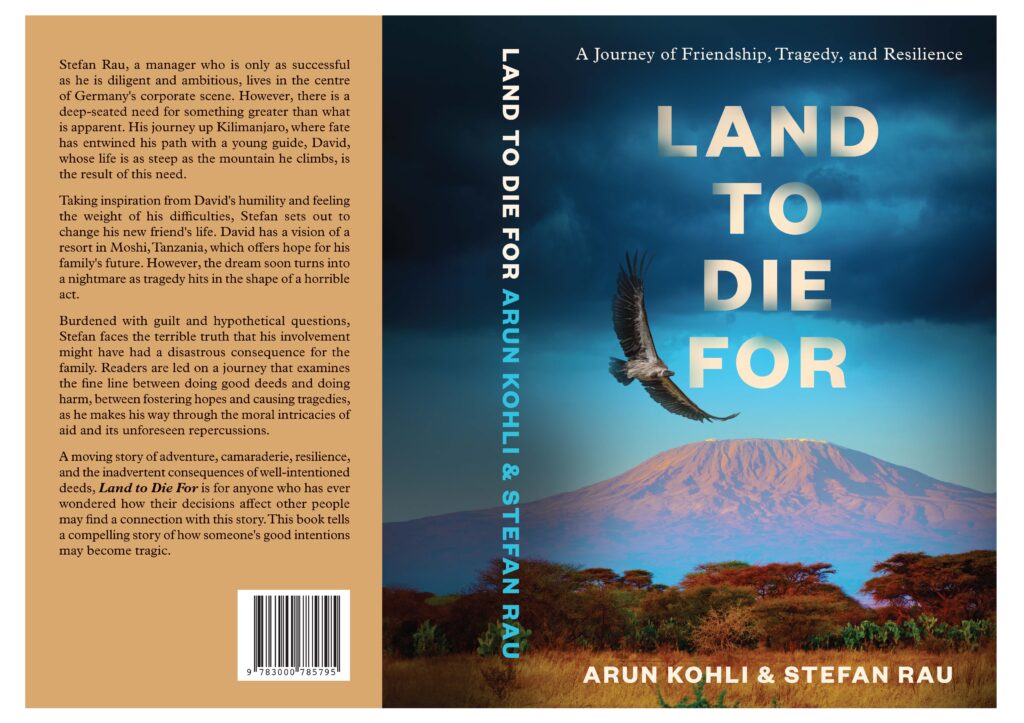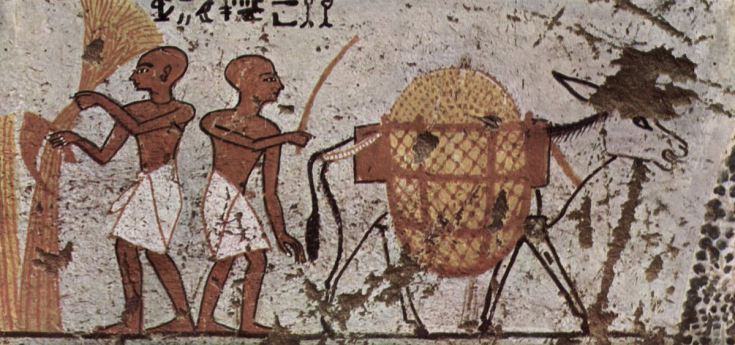Reviewed by Madhavan Pillai / 2024

“Land to Die For: A Journey of Friendship, Tragedy, and Resilience” by Arun Kohli and Stefan Rau is a compelling narrative that blends personal growth, travelogue, cultural exploration, and the resilience of the human spirit. The author embarks on a journey that transcends the physical act of climbing Mount Kilimanjaro, weaving in tales of friendship, loss, and the complexities of cross-cultural aid.
The book opens with a vibrant portrayal of the author’s contrasting upbringings in Lummerschied, Germany, and an introduction to Grandma and David’s family in Tanzania. The tone is set early on with Grandma’s cautionary words, “be careful with the Germans,” which becomes a captivating hook for the entire narrative. Throughout the book, there’s a deep exploration of Germany’s colonial past and its transformation into a global leader today, reflecting on how history has shaped the country and its people. Central to this transformation is protagonist Stefan Rau, whose journey embodies the country’s shift and adaptation over time, seamlessly intertwining personal and global history.
This sets the stage for a narrative that delves deeply into the concept of cross-cultural exploration, challenges stereotypes, uncovers unexpected connections, and celebrates cultural resilience, examining how individuals and communities navigate the complexities of their cultural identities in the face of historical challenges and societal transformations. Through vivid storytelling and nuanced character development, the book invites readers to witness the cultures exhibit strength, fortitude, and endurance as they adapt, evolve, and assert their identities amidst shifting landscapes. As the story unfolds, it illuminates the ways in which cultural resilience manifests itself in everyday life, shaping relationships, shaping communities, and shaping the broader narrative of human experience.
The detailed descriptions effortlessly transport readers to the bustling markets of Moshi, where the vibrant colors and lively sounds come to life, while simultaneously evoking the breathtaking grandeur of Mount Kilimanjaro, painting a vivid picture of Tanzania’s diverse and captivating landscape. Against this backdrop, the narrative seamlessly transitions to the challenges awaiting, juxtaposing the serene beauty of the landscape with the impending tasks at hand. Through the author’s skillful prose, readers are immersed in a world where cultural differences fade away, replaced by a shared sense of community and purpose. It’s a portrayal that celebrates the richness of diversity while underscoring the common humanity that binds us all together.
The author’s ascent of Mount Kilimanjaro evolves into a profound allegory for the relentless pursuit of unity and comprehension. With each grueling step and battle against nature’s forces, internal struggles mirror the challenges encountered on the path to cultural harmony. David, the attentive guide, transcends his role as a mere climber’s resource, emerging as a potent symbol of bridge-building between cultures. Meanwhile, the team’s dynamics, forged through shared hardships, serve as a microcosm of the unity the narrative endeavors to achieve. The anecdote about the overpriced Coca-Cola on the “Coca-Cola Route” injects humor while symbolizing the unexpected difficulties that can arise.
The heart of the book delves deep into the intricacies of supporting David’s family both before and after his tragic passing. The author’s journey is marked by a profound struggle with guilt and an unwavering desire to ensure long-term security for the Davidäs family, a bond that deepened over time through shared experiences. Through ventures such as lodges, cornmeal production, and a chicken farm, we catch glimpses of the protagonist Stefan Rau’s leadership qualities and the invaluable lessons he imparts on micro-planning, project management, and leadership, enriching the narrative with themes of resilience, determination, and the complexities of human relationships.
The book delves into the emotional intricacies of cross-cultural friendships and the challenges of navigating unfamiliar social and legal landscapes. The author’s honesty about their own mistakes and vulnerabilities creates a relatable and engaging narrative.
While the portrayal of the Tanzanian family’s perspective could be further developed, the story serves as a powerful reminder of the importance of cultural exchange and fostering genuine connections that transcend geographical boundaries. The book celebrates the human spirit’s ability to overcome adversity, the enduring power of friendship and perseverance, and, of course, Mount Kilimanjaro.



